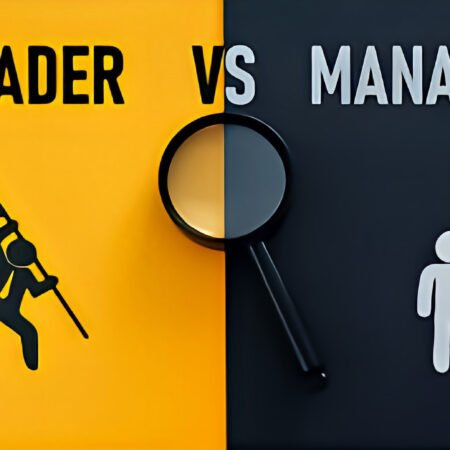Leadership isn’t about bossing people around. It’s not about titles or corner offices. True leadership is about inspiring, motivating, and guiding others towards a shared vision. It’s about creating an environment where everyone feels valued, empowered, and excited to contribute their best. But what makes a truly good leader? What qualities of a good leader separate those who simply manage tasks from those who genuinely lead people?
In this article you will find 20 essential qualities of a good leader that build trust, nurture growth, and pave the way for remarkable achievements. These qualities, will not only elevate your leadership skills but also establish you as a respected and influential figure in your field.

Integrity
Courage
Communication
Empathy
Accountability
Decisiveness
Inspiration
Positivity
Delegation
Humility
Emotional Intelligence
Problem-Solving
Resilience
Strategic Thinking
Mentorship
Innovation
Respect
Teamwork
Adaptability
Vision
Imagine a captain navigating a ship through stormy seas. Without a clear destination in mind, the ship would be tossed about aimlessly. Similarly, a good leader possesses a vivid and compelling vision of the future. They don’t just see the destination; they paint a picture so inspiring that it motivates everyone to hop on board and navigate the journey together.
Integrity
Think of the people you admire most. Chances are, they’re individuals who consistently do the right thing, even when it’s difficult. Good leaders possess unwavering integrity. They are honest, ethical, and fair in all their dealings. This creates a foundation of trust and respect, making people feel safe and confident in their leadership.
Courage
Leadership isn’t for the faint of heart. It requires making tough decisions, taking calculated risks, and sometimes venturing into uncharted territory. Courageous leaders aren’t afraid to step up, challenge the status quo, and forge a new path, even when faced with uncertainty.
Communication
Imagine trying to build a house without clear instructions. Chaos would ensue! Similarly, effective communication is the bedrock of good leadership. Good leaders are skilled communicators. They articulate their ideas clearly, listen attentively to their team’s concerns, and provide constructive feedback that fosters growth.
Empathy
Great leaders don’t just see their team as a collection of individuals; they understand their emotions, perspectives, and needs. They show genuine empathy, creating a supportive and inclusive environment where everyone feels valued and understood.
Accountability
True leaders take ownership. They don’t shy away from responsibility, both for their successes and their failures. This fosters a culture of accountability where everyone feels empowered to contribute and learn from mistakes.
Decisiveness
In the face of a challenge, a good leader doesn’t hesitate. They analyze the situation, weigh the options, and make timely decisions with confidence. This decisiveness inspires trust and keeps the team moving forward.
Inspiration
Think of a coach motivating their team before a big game. Inspirational leaders ignite passion and enthusiasm in others. They instill a sense of purpose, making people feel like they are part of something bigger than themselves.
Positivity
A positive attitude can be incredibly contagious. Good leaders maintain an optimistic outlook, even in the face of adversity. They focus on solutions, encourage their team to see the silver lining, and create an environment where everyone feels motivated to overcome challenges.
Delegation
Effective leaders understand they can’t do it all. They trust their team members with responsibilities, empowering them to utilize their unique skills and grow professionally. This not only lightens the leader’s load but also fosters a sense of ownership and initiative within the team.
Humility
Nobody’s perfect, and good leaders recognize this. They are humble, acknowledge their limitations, and are always open to learning and growing. This creates a culture of continuous improvement and encourages others to do the same.
Emotional Intelligence
Imagine a conductor leading an orchestra. They need to understand not only the music but also the emotions and dynamics of each musician. Similarly, leaders with high emotional intelligence can understand and manage their own emotions while also being attuned to the emotions of others. This enables them to build strong relationships, navigate interpersonal dynamics effectively, and create a harmonious and productive work environment.
Problem-Solving
Challenges are inevitable in any endeavor. Good leaders are adept at problem-solving. They can identify the root cause of an issue, analyze potential solutions, and implement effective strategies to overcome obstacles.
Resilience
Life throws curveballs. Resilient leaders don’t crumble in the face of setbacks. They bounce back from adversity, learn from their experiences, and emerge stronger and wiser. This resilience inspires the team to persevere, even when the going gets tough.
Strategic Thinking
Like a chess player thinking several moves ahead, good leaders possess strategic thinking skills. They anticipate future trends, identify opportunities, and develop long-term plans to achieve success. This forward-thinking approach keeps the team focused and prepared for what lies ahead.
Mentorship
Great leaders invest in the growth of others. They act as mentors, providing guidance, support, and opportunities for development. This not only helps individuals thrive but also creates a pipeline of future leaders within the organization.
Innovation
The world is constantly evolving, and good leaders embrace change. They encourage creativity and innovation within their team, fostering a culture of experimentation and continuous improvement. This allows the team to adapt, evolve, and stay ahead of the curve.
Respect
Respect is the cornerstone of any healthy relationship. Good leaders treat everyone with dignity and appreciation, regardless of their position or background. This fosters a positive and inclusive work environment where everyone feels valued and respected.
Teamwork
A team is more than just a group of individuals. Good leaders cultivate a strong sense of teamwork and collaboration. They encourage open communication, mutual support, and a shared commitment to achieving common goals.
Adaptability
In today’s dynamic world, change is the only constant. Adaptable leaders are flexible and open to new ideas. They are willing to adjust their strategies and approaches as needed to navigate evolving circumstances.
By cultivating these 20 essential qualities of a good leader, you can inspire your team, drive success, and leave a positive impact on the world. Remember, leadership is a journey of continuous learning and growth. Embrace these qualities, and you’ll be well on your way to becoming the exceptional leader you aspire to be.





